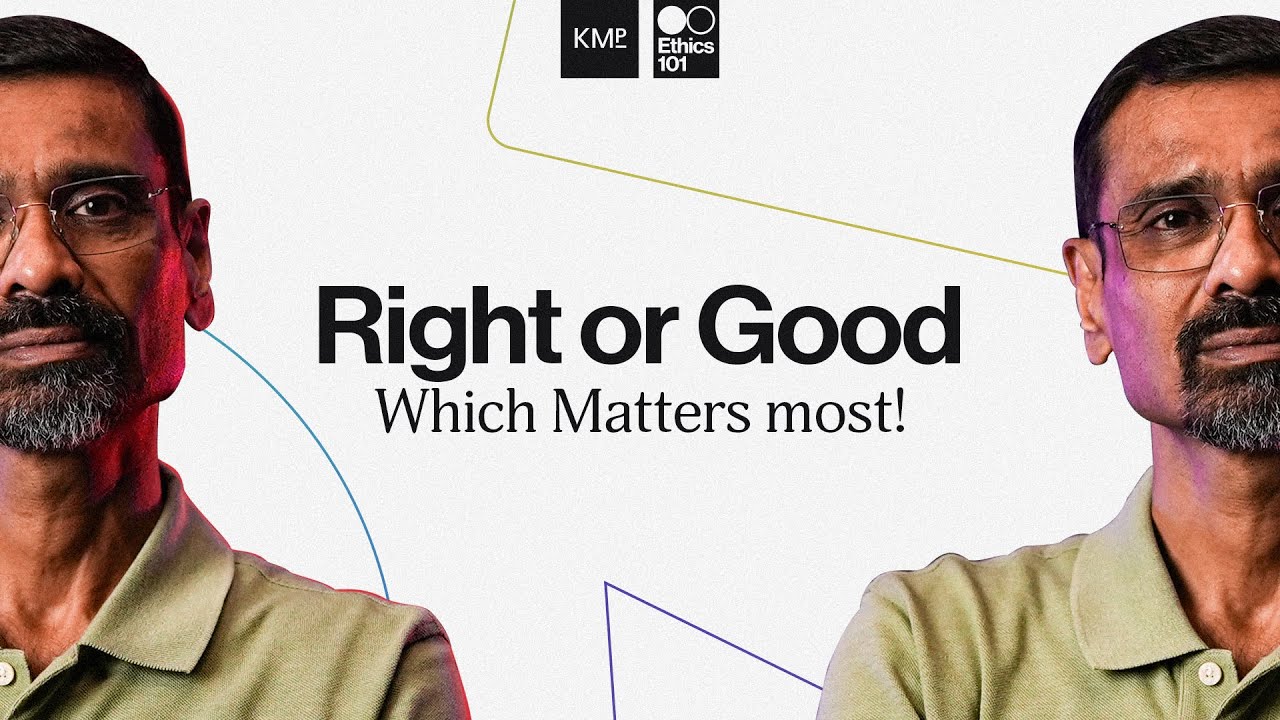What is Moral Responsibility?
Summary
TLDRMoral responsibility refers to the status of being deserving of praise, blame, reward, or punishment based on one's actions or omissions, in line with moral obligations. This concept is tied to the 'reactive attitudes' like resentment, indignation, and gratitude, introduced by philosopher Peter Strawson. However, moral responsibility is distinct from causal responsibility, as only persons, not animals or inanimate objects, can be morally responsible. Philosophers debate what qualifies someone to be an appropriate target for moral attitudes and practices, with factors like personhood and maturity, such as in the case of children, playing a role.
Takeaways
- 😀 Moral responsibility refers to the status of deserving praise, blame, reward, or punishment for an action or omission based on moral obligations.
- 🤔 If an agent is morally responsible for their actions, they can be the target of certain attitudes and practices, such as resentment, indignation, gratitude, and approval.
- 😠 Peter Strawson referred to these attitudes as 'reactive attitudes,' which include emotions like resentment or approval.
- 🙌 A morally responsible agent can also be subject to practices like praise, blame, reward, and punishment.
- 📜 Moral responsibility differs from causal responsibility—someone can be causally responsible for an event without being morally responsible for it.
- 💧 For example, if a person spills water on a computer, they are both causally and morally responsible. However, if a cat spills water, the cat is causally responsible but not morally responsible.
- 🐱 The reason cats are not morally responsible is that they are not persons, and only persons can be held morally responsible for their actions.
- 👶 Not all persons are morally responsible. For instance, children are generally not considered fully responsible for their actions.
- 🧐 Philosophers disagree on the exact conditions under which a person is morally responsible and what makes someone an appropriate target for reactive attitudes.
- ⚖️ Deciding what counts as a moral obligation is a key concern in ethics, shaping our understanding of moral responsibility.
Q & A
What is moral responsibility?
-Moral responsibility is the status of being morally deserving of praise, blame, reward, or punishment for an act or omission in accordance with one's moral obligations.
How does moral responsibility differ from causal responsibility?
-Causal responsibility refers to being the cause of something happening, while moral responsibility includes being the appropriate target of attitudes like resentment or gratitude. One can be causally responsible without being morally responsible.
What are reactive attitudes according to Peter Strawson?
-Reactive attitudes, as described by Peter Strawson, are emotional responses like resentment, indignation, gratitude, and approval, which we direct toward agents who are morally responsible for their actions.
Can non-human agents, such as animals, be morally responsible?
-No, non-human agents like animals cannot be morally responsible. For example, if a cat spills water on a computer, it cannot be held morally responsible, even though it is causally responsible for the damage.
Why are some persons, such as children, not always considered morally responsible?
-Children are persons but are generally not taken to be fully responsible for their actions because they may lack the full capacity to understand the moral implications of their actions.
What role does moral obligation play in moral responsibility?
-Moral obligation determines what actions or omissions an agent is responsible for. An agent is morally responsible if they fail to meet their moral obligations.
What kind of attitudes and practices can a morally responsible agent be the target of?
-A morally responsible agent can be the target of reactive attitudes such as resentment and approval, as well as practices like praise, blame, reward, and punishment.
Can a person be causally responsible but not morally responsible? Provide an example.
-Yes, a person can be causally responsible but not morally responsible. For example, if you accidentally spill water on my computer, you are causally responsible for the damage but may not be morally responsible if it was an honest mistake.
Why is deciding what counts as morally obligatory a key concern of ethics?
-Determining what counts as morally obligatory is crucial because it defines the standards by which we judge whether someone is morally responsible for their actions.
Do all philosophers agree on what makes someone morally responsible?
-No, philosophers disagree about the conditions that make someone morally responsible. There are different views on what makes an individual an appropriate target for reactive attitudes like praise and blame.
Outlines

Cette section est réservée aux utilisateurs payants. Améliorez votre compte pour accéder à cette section.
Améliorer maintenantMindmap

Cette section est réservée aux utilisateurs payants. Améliorez votre compte pour accéder à cette section.
Améliorer maintenantKeywords

Cette section est réservée aux utilisateurs payants. Améliorez votre compte pour accéder à cette section.
Améliorer maintenantHighlights

Cette section est réservée aux utilisateurs payants. Améliorez votre compte pour accéder à cette section.
Améliorer maintenantTranscripts

Cette section est réservée aux utilisateurs payants. Améliorez votre compte pour accéder à cette section.
Améliorer maintenantVoir Plus de Vidéos Connexes

Moral Luck: Crash Course Philosophy #39

Moral Agent | Ethics Defined

"Why Right and Good Aren't the Same!" | UPSC GS 4 Ethics | K M Pathi | Ethics101

Are Jews the Chosen People? With Shaykh Hamza Karamali

Is Christianity Hard or Easy? by C.S. Lewis Doodle (BBC Talk 24, Mere Christianity, Bk 4, Chapter 8)

3/8 Aya - Grand Final of Indonesia Open 2023
5.0 / 5 (0 votes)
